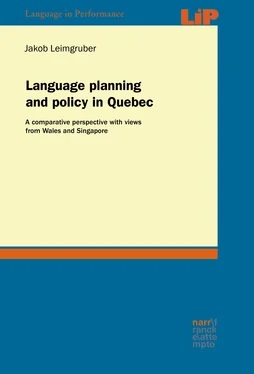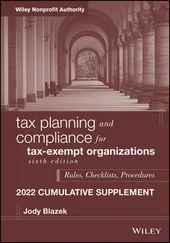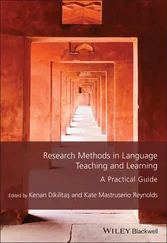1 ...7 8 9 11 12 13 ...19 In contrast with these multilingual territories, the government of British Columbia provides no services in French beyond federally-guaranteed French education. Historically, the province has had little direct contact with French, much of the non-Anglophone (and non-Aboriginal) immigration coming in the form of Chinese labourers recruited from Hong Kong for the construction of the Canadian Pacific Railroad. In fact, recently efforts at regulating the linguistic landscape in the province emerged in the wake of media reports of Chinese-only adverts in public space: the city of Richmond has now entered into agreements with advertisers that stipulate that English should be present on their signage (Chan, 2016). While these contracts are not legislation per se , there is an ongoing discussion in the city and the province on whether a more statutory provision is needed (Wood, 2014; Hoekstra, 2014; Chan, 2016). At the other end of the country, Newfoundland and Labrador, the last province to join the confederation in 1949, also provides virtually no French services.
Alberta has a Languages Act 1988 which, presumably in the wake of the Supreme Court decision concerning Manitoba’s laws, explicitly mentions that any law (or act, ordinance, regulation) enacted prior to the Languages Act is valid ‘notwithstanding that they were enacted, printed and published in English only’ (s 2(1)). Nonetheless, both English and French may be used in the legislature and before court, and both the English and the French versions of the Languages Act are equally authoritative (s 8). Education in French is available to Francophones, and there are independent French school boards. Services from the provincial government, however, are available in English only, a state of affairs that is currently being addressed by a newly elected government (Orfali, 2016a; Orfali, 2016b).
Saskatchewan has a Language Act, also from 1988, with the full title ‘An Act respecting the use of the English and French languages in Saskatchewan’. It, too, begins with a section declaring all existing acts, regulations, etc., valid notwithstanding that they were originally enacted in English only (s 3). Unlike in Alberta, however, it has a section 4 which says that all ‘Acts and regulations may be enacted, printed and published in English only or in English and French’ – English is clearly dominant, but at least French is mentioned (the Alberta Languages Act only says ‘may be enacted, printed and published in English’ (s 3)). The use of both languages before court is guaranteed, as it is in the legislature. Assembly records, however, are kept only in English (s 12(3)). There is a minority of Francophones in the province, called the ‘Fransaskois’, which account for around 1.6 % of the population. A French education system has been in existence again since the 1960s; it had previously been banned in 1931. There are currently 13 francophone schools in the province (Conseil des écoles fransaskoises, 2016).
Nova Scotia, previously settled by Acadians that were expelled beginning in 1755 (in the course of le grand dérangement ), has a small minority of Francophones (3.4 %) left; the municipality of Clare at the southwestern tip of the province is the only with a clear majority of French speakers, though there are speakers on the west coast of Cape Breton Island, too. There is no provincial legislation on language, but the government does operate an Office of Gaelic Affairs and an Office of Acadian Affairs, both of which try to raise awareness and interest in the linguistic and cultural heritage of the respective ethnic group; there is some interest in improving government services in French (Acadian Affairs, 2015). The government maintains a French presence online ( http://novascotia.ca/bonjour).
Prince Edward Island (PEI), the smallest province of Canada, was also home to Acadians, many of them refugees from Nova Scotia’s 1755 expulsions, who were in turn deported three years later. Today, 3.8 % of the province’s population indicate French as their mother tongue (2011 census). French education is available in six schools islandwide, run by a French language school board. Like Nova Scotia, PEI does not have an act regulating the official language; English is dominant and the de facto official language used in government. It does, however, have a French Language Services Act, first passed in 1999, with a new version coming into force in 2013. It lists a number of government services that shall be made available in the French language; but begins with a hedge that ‘nothing in this act […] shall be construed as dictating or otherwise limiting the working language of the Government’ (s 2(2)), which, obviously, is English. The services in question cover mainly written communication received by the government and the response to be given (s 4). Signage is addressed in section 5, where consultation with the appropriate ‘Acadian and Francophone’ communities is mandated in the case of ‘signage giving notice of a community name’. An Acadian and Francophone Community Advisory Committee is established, which supports the ministry in its language-related duties. Perhaps most important symbolically is that, in a province whose legislation is entirely English, this act was the first to be enacted in both languages, with both versions being equally authoritative (s 18).
With over 13 m inhabitants, Ontario is the most populous province. Its capital is Toronto, the country’s largest city. Ottawa, the federal capital, is in the province, bordering Quebec’s Gatineau city, and forming with the latter the Ottawa-Gatineau Metropolitan Area, officially designated as the National Capital Region. The Francophone presence in present-day Ontario goes back to early New France, as traces in toponymy reveal to this day (Sault Sainte-Marie, Embrun, Champlain, Saint-Eugène, Lefaivre, Limoges, etc.). The 1763 creation of the Province of Quebec included much of settled Ontario (and beyond, encompassing the Great Lakes all the way south to the Ohio River); however, upon the creation, in 1791, of ‘The Canadas’, the Province of Quebec was partitioned into two colonies, Upper Canada and Lower Canada, with the border between the two roughly where the current Ontario-Quebec border lies.
The two languages, French and English, were (and are) in the majority on their respective sides of the border, but pockets of Anglophones in Quebec and of Francophones in Ontario remain. In Ontario, many of these communities are located in eastern Ontario, close to the Quebec border, but others are found throughout the province, including in the Cochrane, Algoma, and Sudbury districts located between Lake Superior and Quebec, and in the Golden Horseshoe area at the western end of Lake Ontario. In the 2011 census, 3.9 % of the provincial population declared French as their mother tongue, though only 2.2 % report using it as their home language. The largest populations are in Ottawa and Greater Sudbury, whereas the counties of Prescott and Russell, on the border with Quebec, have the highest proportion of French speakers (66.2 %).
Ontario, too, had a period in its history in which it was openly hostile to the French language. This was particularly visible in educational provisions, which were halted by ‘Regulation 17’ in 1912. Teachers were forbidden to use French with pupils beyond the first year, French textbooks were banned, and anyone wishing to pursue a French education had to do so in the expensive private system. It was only in the late 1960s that provincial funding for French language schools was reinstated. In 2016, the Premier of the province formally apologised for the ban, saying it ‘showed a disregard for Franco-Ontarian identity and equality’ (CBC News, 2016a). The policy also resulted in lower educational achievement for Francophones, translating into lower socio-economic status in adult years.
Читать дальше












